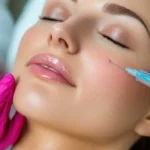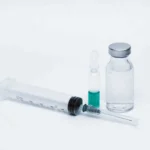Table of Contents
As we age, many of us search for effective ways to maintain a youthful appearance and combat the visible signs of aging. Among the various treatments available, chemical peels have gained popularity for their potential anti-aging benefits. But do they really live up to the hype? Let’s explore the science behind chemical peels and their effects on aging skin.
What are Chemical Peels?
Chemical peels are cosmetic treatments that involve applying a chemical solution to the skin, causing it to exfoliate and eventually peel off. This process reveals new, rejuvenated skin underneath. There are different types of chemical peels, ranging from mild to deep, each with varying ingredients and strengths.
The most common types include:
- Superficial peels: Using mild acids like alpha-hydroxy acids (AHAs)
- Medium peels: Often containing trichloroacetic acid (TCA)
- Deep peels: Typically using phenol
How Do Chemical Peels Work?
Chemical peels work by creating controlled damage to specific layers of the skin. This triggers the body’s natural healing response, stimulating collagen production and cell turnover. As the damaged skin peels away, it’s replaced by new, healthier skin cells.
The depth of the peel determines the extent of its effects:
- Superficial peels only affect the outermost layer of the skin (epidermis)
- Medium peels reach the upper part of the middle layer (dermis)
- Deep peels penetrate the lower dermal layer
Anti-Aging Benefits of Chemical Peels
One of the primary reasons people seek chemical peels is to diminish the appearance of fine lines and wrinkles. By removing the top layers of dead skin cells and stimulating collagen production, chemical peels can help smooth out these signs of aging.
A study published in the Journal of Clinical and Aesthetic Dermatology found that a series of superficial chemical peels significantly improved the appearance of fine lines and wrinkles in participants.
Improved Skin Texture and Tone
Chemical peels can help even out skin tone and improve overall texture. They’re particularly effective at addressing issues like:
- Rough or uneven skin texture
- Sun damage and age spots
- Mild acne scars
By removing damaged skin cells and promoting the growth of new ones, chemical peels can leave the skin looking smoother, brighter, and more youthful.
Increased Collagen Production
Collagen is a protein that gives skin its structure and elasticity. As we age, collagen production naturally declines, leading to sagging skin and wrinkles. Chemical peels, especially medium and deep peels, can stimulate collagen production in the dermis.
A study in the Archives of Dermatological Research demonstrated that TCA peels increased collagen synthesis in the skin, contributing to improved skin firmness and elasticity.
Enhanced Skin Cell Turnover
Our skin’s natural cell turnover process slows down with age, leading to a buildup of dead skin cells that can make the complexion appear dull and aged. Chemical peels accelerate this process, revealing fresher, younger-looking skin more quickly.
Improved Product Absorption
By removing the outer layer of dead skin cells, chemical peels can enhance the absorption and effectiveness of other skincare products. This means that your regular anti-aging serums and moisturizers may work even better after a peel.
Treatment of Hyperpigmentation
Age spots, sun spots, and other forms of hyperpigmentation are common signs of aging skin. Chemical peels can help fade these discolorations by removing the pigmented skin cells and inhibiting melanin production.
A review in the Journal of Clinical and Aesthetic Dermatology highlighted the effectiveness of various chemical peels in treating different types of hyperpigmentation.
Considerations and Potential Side Effects
While chemical peels offer significant anti-aging benefits, it’s important to consider potential side effects and limitations:
- Temporary redness and irritation
- Increased sun sensitivity
- Risk of infection or scarring (particularly with deeper peels)
- Potential for hyperpigmentation in darker skin tones
- Not suitable for all skin types or conditions
It’s crucial to have chemical peels performed by qualified professionals who can assess your skin type and recommend the most appropriate treatment.
Comparing Chemical Peels to Other Anti-Aging Treatments
Chemical peels are just one of many anti-aging treatments available. How do they compare to other options?
- vs. Botox: While Botox targets specific muscles to reduce dynamic wrinkles, chemical peels offer more comprehensive skin rejuvenation. They can be complementary treatments.
- vs. Microdermabrasion: Both treatments exfoliate the skin, but chemical peels can penetrate deeper and offer more dramatic results.
- vs. Laser treatments: Laser treatments can be more precisely targeted, but chemical peels often come with a lower cost and less downtime.
- vs. Topical anti-aging products: Chemical peels offer more immediate and noticeable results, but regular use of high-quality topical products is important for maintaining results.
Maximizing the Benefits of Chemical Peels
To get the most out of chemical peels, consider the following tips:
- Follow a consistent skincare routine before and after treatments
- Protect your skin from sun exposure, especially after a peel
- Stay hydrated and maintain a healthy diet
- Consider a series of peels rather than a single treatment for optimal results
- Combine peels with other anti-aging treatments as recommended by your provider
The Verdict: Do Chemical Peels Have Wonderful Anti-Aging Benefits?
Based on scientific evidence and clinical experience, chemical peels do indeed offer significant anti-aging benefits. They can effectively address multiple signs of aging, from fine lines and wrinkles to uneven skin tone and texture. However, it’s important to have realistic expectations and understand that results can vary depending on factors like skin type, peel strength, and individual response to treatment.
Chemical peels are not a one-size-fits-all solution, and they work best as part of a comprehensive anti-aging strategy that includes proper skincare, sun protection, and a healthy lifestyle. For many people, chemical peels can be a valuable tool in the quest for younger-looking skin.
At FG Aesthetics and Medicine, we believe in providing personalized treatment plans that take into account each patient’s unique skin concerns and goals. Our experienced professionals can help you determine if chemical peels are the right choice for your anti-aging journey and guide you through the process to achieve optimal results.
Remember, the key to successful anti-aging treatments is consistency and patience. While chemical peels can provide noticeable improvements, maintaining youthful-looking skin is an ongoing process that requires dedication and proper care. With the right approach, chemical peels can indeed offer wonderful anti-aging benefits, helping you achieve the radiant, youthful complexion you desire.










